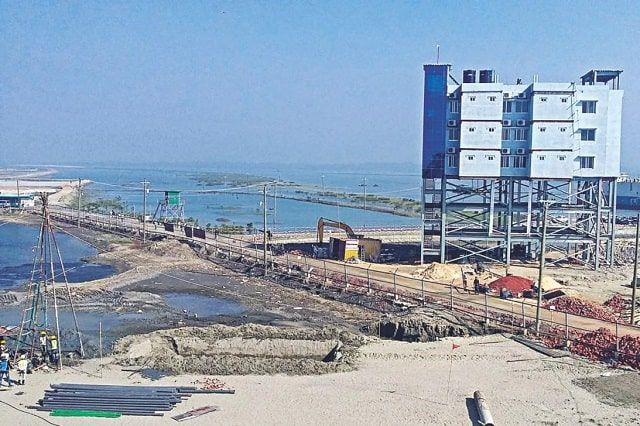
The LDC graduation also means that Bangladesh needs to abandon its protectionism approach for its economy. Courtesy: Star
Recently business experts opined that the government should do more work and prepare for any post-graduation challenges Bangladesh may face when it leaves the list of least-developed countries (LDC) in 2026. They expressed this in a webinar titled, “Bangladesh’s Transition to Developing Country – Biggest Milestone in Her Development Journey,” organized by the Canadian University of Bangladesh.
The panelists expressed that it would be a disgrace for Bangladesh if it has to plea for more time to make the transition. So, measures need to be made at the earliest to surpass the challenges of graduation so that Bangladesh does not plea for a further delay of its transition period i.e.,2026. While terming the LDC graduation as the biggest achievement for Bangladesh, they underlined the need to guarantee smooth and sustainable graduation. “The graduation is not any single person’s achievement; rather it is an achievement for the entire nation,” said Ahsan H Mansur, Executive Director of the Policy Research Institute and a renowned economist.
Mansur also said Bangladesh’s per capita income, which was at $123.50 until 1971, radically dropped to $94 in 1972 following the independence war.
Mansur added, “It was such a great shock to the country and its economy when the central bank did not have a single dollar to operate foreign trade. We had no gold in our fund. But for Bangladesh to reach its current stage from that devastating position is such a great achievement.”
The graduation also means that Bangladesh needs to abandon its protectionism approach for its economy.
Mansur on this stressed the need to open up the local market for global businesses. “The country’s average protection level is as high as around 27%. While the average protection level in both India and China stands at 9%, while it is 7.4% for ASEAN countries,” he told, “We need to build up a competitive economy as we can’t progress much with a protected economy.”
Also, a former official of the International Monetary Fund (IMF), Ahsan H Mansur added, “The export volume of both Bangladesh and Vietnam was just $1 billion in the early 1990s. Vietnam’s current exports amount to $270 billion against Bangladesh’s $40 billion. We need to reach that level.”
He also said that the country should work to strengthen its international political and economic diplomacy to achieve its various interests, such as securing the generalized system of preferences-Plus (GSP+) after graduation.
“Since the country may face challenges such as the loss of duty-free access to different international markets after graduation, efforts should be given for bilateral, regional or sub-regional trade arrangements to attain duty-free or less-duty export facilities,” said Mirza Azizul Islam, a former adviser to a caretaker government.
Adding that even after facing 14 to 15% duty on exports to the US, Bangladesh is doing much better compared to other LDC countries.
Prof Mustafizur Rahman, an eminent fellow of the Centre for Policy Dialogue (CPD), said, “Bangladesh needs to take preparatory measures in the next five years to ensure a smooth transition to the developing status and make graduation sustainable.” He also stresses the need to increase the local institutions’ capacity and strengthening their negotiation skills.
He also urged for initiating a negotiation cell like the WTO Cell under the commerce ministry to deal with the multifaceted negotiations.
In the webinar, Sheikh Mamun Khaled, Pro-Vice-Chancellor of the Canadian University of Bangladesh, and Prof. Shibli Rubayat-Ul-Islam, Chairman of the Bangladesh Securities and Exchange Commission, also spoke.
The UN Committee on Development Policy gave a final recommendation on Bangladesh’s graduation to a developing nation in February. According to the committee’s guidelines, Bangladesh was to leave the LDC group in 2024, but the govt. pursued to extend the transition period by 2 years due to the COVID-19 enforced economic hardships.

